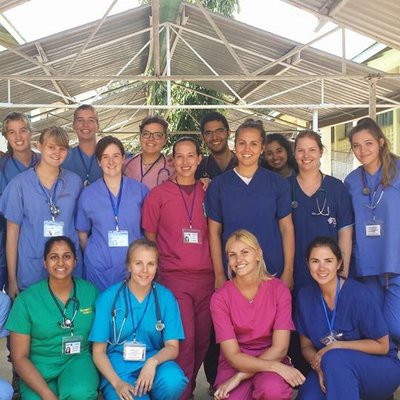Emma was in Ghana on her nursing elective when she was suddenly inspired to pursue a degree in medicine. We spoke to Emma to find out how it happened and where she is now. Read the interview below.
So, let’s start from the beginning. What inspired you to travel overseas with us for the first time?
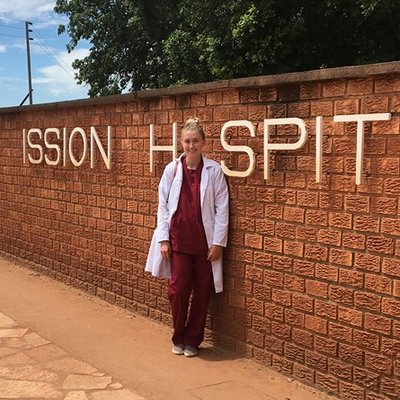 It all started back when I was a nursing student. As part of my nursing degree at the University of Edinburgh, we were entitled to undertake an elective placement and travel wherever we wanted.
It all started back when I was a nursing student. As part of my nursing degree at the University of Edinburgh, we were entitled to undertake an elective placement and travel wherever we wanted.
A lady from Work the World came to my university to discuss our options. A group of my friends and I were interested in what she had to say. It sounded like a fantastic opportunity, so we just went for it. We were all keen on the idea of travelling to Africa, and eventually, we decided on Ghana.
What was it about Ghana that interested you in particular?
I think it was because we didn’t want to go somewhere in a big city then. Takoradi was away from Accra (the capital), near the beach, and the hospital was slightly smaller. It just ticked our boxes.
Can you remember your first impressions of Ghana when you arrived?
I wasn’t sure what to expect, but it was terrific. I remember thinking how beautiful it was. It was clear straight away that there were loads of places we could hang out after placement. The Work the World house was pretty close to the beach, which was a highlight, too.
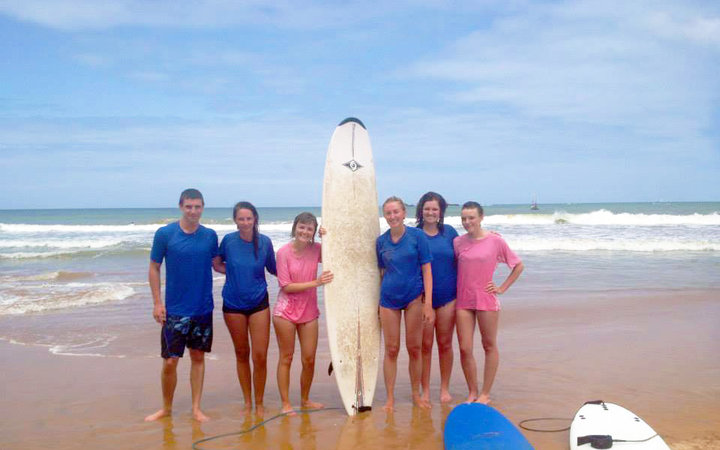
- A day of surfing on Ghana's coast -
What about your first impressions of your placement hospital? Just fire off the first things that jump to mind.
Well, it was the first time I’d been to a developing country, so it was a bit of a shock. Things were under-resourced and crowded compared to our facilities back home. I was initially in the labour ward. It was all so basic, and there were a lot of cultural differences compared to what it would be like at home.
Let’s explore that. What were the most significant differences when it came to culture and practises?
One of the main things was the attitude of staff towards patients. In the UK, we’re more empathetic, or at least more sympathetic. In Ghana, they seemed to have a much harder attitude. They didn’t even have some of the most essential things we take for granted in the UK, like pain relief.
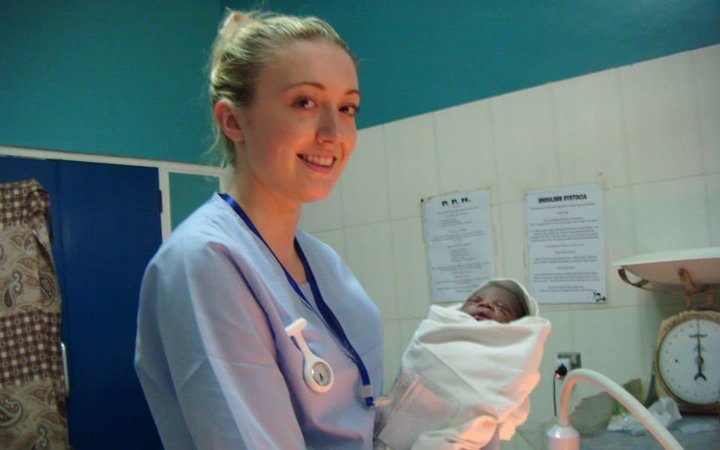
- A new baby on the labour ward in Takoradi -
Patients presented much later than they do in the UK, too. There weren’t many screening programmes in Ghana, so patients presented with advanced diseases. Patients in Ghana have to pay for specific therapies as well. I spent some time in the paediatric department, and some kids didn’t get treatment because their families couldn’t afford it.
How did you find being an observer in those situations?
It was upsetting at first. I didn’t realise how confronting some cases would be—seeing people in pain and suffering in situations that wouldn’t happen in the UK. I even saw people pass away under circumstances that in the UK would never have arisen.
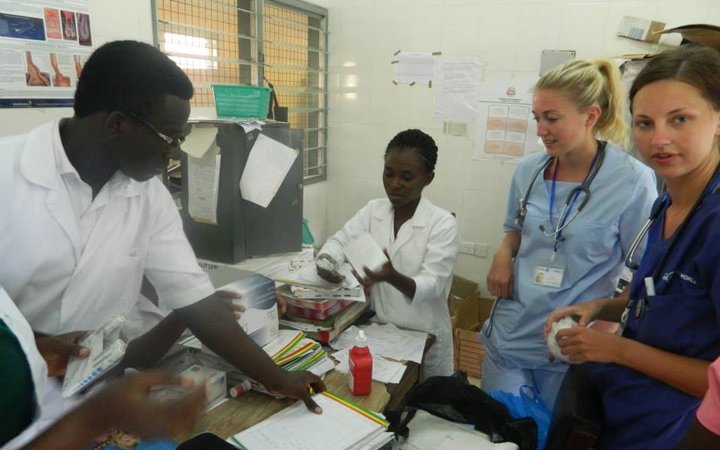
- Getting organised in A&E -
Are there any particular patients or cases like this that stick out in your memory?
There was a child in the paediatric department who had meningitis and tetanus. The child’s family was really poor, and the hospital couldn’t actively treat the child because the family couldn’t afford it. They wouldn’t let the parents take the child home either. It wasn't easy to just stand by because nothing was being done to try to treat this child, but I had to respect cultural differences.
I spent some time in the ED, too, and I remember they didn’t always have essential resources like oxygen. I had one patient who came in and was unconscious and needed oxygen, but because we didn’t have any, the patient ended up passing away. We never really worked out the cause. He was a young patient, too, probably in his 20s. Those are the two that stick out to me. Memories like that make me appreciate what we have in the UK.
That can be tough. How did you process that sort of situation while you were over there?
So, there were other Work the World students in the paediatric department with me, and we often debriefed. One of the huge advantages of travelling with Work the World was that we had a big group of fellow students around us.
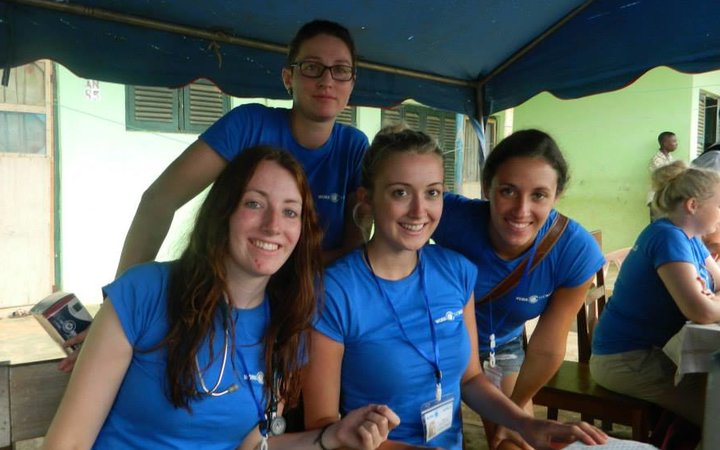
- A visit to the rural village for health checkups -
We always debriefed at the end of the day. We spent time discussing things we’d seen and asking each other questions. There was always someone to discuss it with.
So, changing the tone a little, are any stand-out positive experiences that spring to mind?
One big thing is that the patients there were appreciative. They were so grateful for healthcare. In the UK, people can take it for granted. But in Ghana, everyone was positive and didn’t complain. The staff was resourceful, too. It made me realise how much goes to waste in the NHS. In Ghana, they reused so many things that, in the UK, we just threw away. I took this away as a learning point to avoid wasting so much at home.
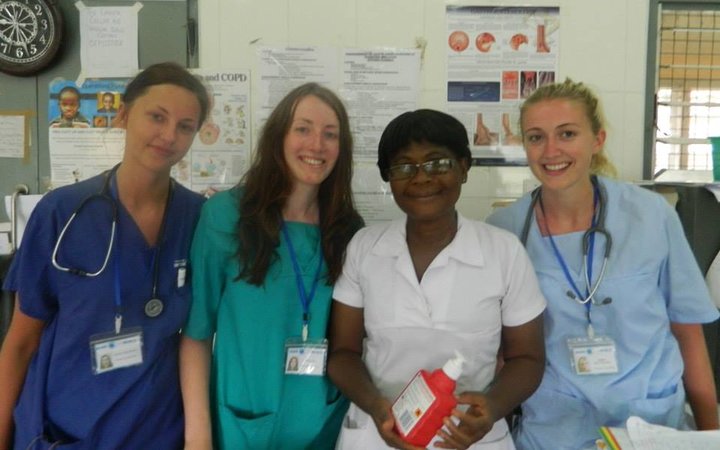
- Emma and fellow students with the A&E charge nurse in Takoradi -
You were getting all of this practical nursing experience while in Ghana and working on your nursing degree in Edinburgh. But then you decided to switch to medicine. How did that happen?
Funny you should ask at this point because it happened when I was in Ghana. We were sharing a house with some medical students, and I often chatted with them. I remember asking them about their course and what their careers would be like. Around then, I realised medicine was something I’d be interested in.
I remember asking them about the application process, which gave me a better idea of what I needed to do to start studying medicine. When I returned to the UK, I started applying to study medicine.
When you had these conversations with your housemates, what were they saying? What magic words made you think, ‘This is for me’?
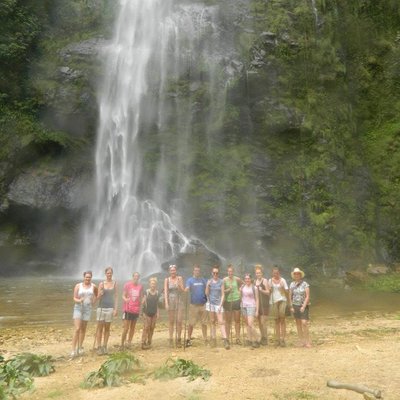 Honestly, they seemed to know more than my colleagues and I did. I wanted to learn more — about illnesses and diseases and treatments…. I wanted to expand my knowledge in those areas.
Honestly, they seemed to know more than my colleagues and I did. I wanted to learn more — about illnesses and diseases and treatments…. I wanted to expand my knowledge in those areas.
I realised I wanted to be more involved in diagnosing and planning patient treatment. Nursing is much more about patient care.
I trained in adult nursing, which is explicitly geared towards adult nursing. With medicine, you get to see all aspects of healthcare.
I felt it was the right time to pursue it before I took a full-time job. If it didn’t work out, then it didn’t work out. I returned from Takoradi, finished my nursing degree, and set about applying for a place on a medical degree program.
And what was that application process like?
I was treated in the same way as any other postgraduate applicant. I applied alongside everyone else — school leavers and postgraduates. Everyone. The application process involved an aptitude test called the UKCAT, and I had to write a personal statement and then send my application in. Then I had to go for an interview. It’s quite a long process, but it wasn’t that complicated.
Nursing and medicine are aligned in their core focus, but information on a medical Degree has a greater depth. How did you find that step change in learning?
It was a lot harder than I thought it was going to be. At first, anyway. I struggled in the first year. It was a lot of science, which I hadn’t done since… Well, I’d done basic science in nursing, but this was a lot more in-depth.
The first two years were all science-based and theory-based, which I found pretty tricky. By the third year, we were into the clinical years, which were much more enjoyable. I enjoyed the course, but the first two years were more challenging as we didn’t spend time on the ward.
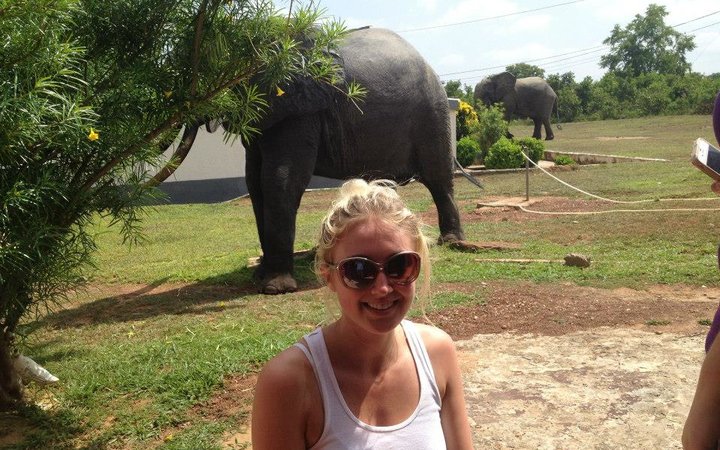
- Emma out on a Ghanaian safari -
So, your nursing degree didn’t help you much with the science bit. Do you think it helped you in any other ways?
Oh, it helped. As you say, not so much at the start because what we were learning about the medical degree was so in-depth. But by the time I was in my clinical years and seeing patients, my previous placement experience helped massively.
It seems strange that I only have one week left of my degree. I must admit, it does feel good to be at the end after nine years at university! I’m moving to Glasgow as a junior doctor for two foundation years.
That’s brilliant news — It sounds like a big step. Do you have any anxieties about it?
It’s going to be a big learning curve, but I feel as though, coming from a nursing background, I know how things work on the ward, I know the hierarchies, and I know more practical things to make life easier than other students in my year might struggle with at first, so I should be fine.
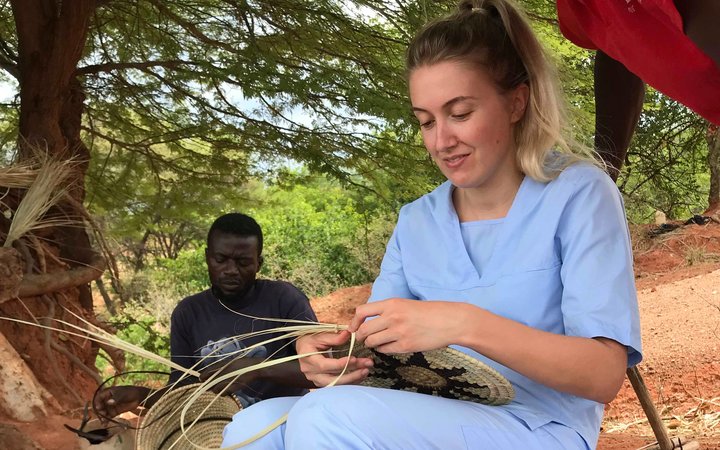
- Learning weaving during a trip to the village -
We’ve skipped a bit, so let’s return to when you were on your medical degree...You decided to travel to Lusaka in Zambia with Work the World. What was it that made you decide on Zambia?
I knew I wanted to travel with Work the World again because I’d had such a good experience the first time. It was much easier than my friends who tried to plan their medical electives alone. They were all so stressed, and the process seemed so complicated. Work the World pretty much organised everything for me.
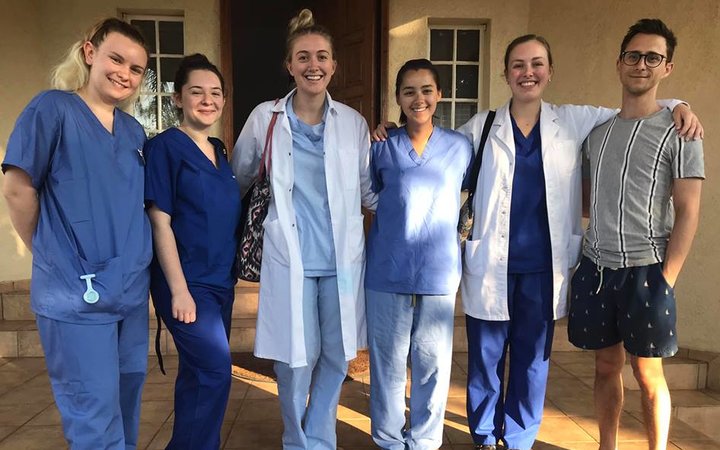
- Housemates in Work the World's Lusaka house -
I chose Lusaka because I had such a good experience in Ghana that I knew I wanted to return to Africa.
People rarely visit two of our programmes, let alone once as a nurse and once as a medic! It might be good to compare your clinical experiences in the two destinations.
Well, in terms of the similarities, the attitudes towards patients are similar in both countries. I found that doctors just went ahead with procedures and didn’t ask for consent. You could expect significant disciplinary action against you if you did it in the UK. But I learned a lot from the doctors. They were knowledgeable, and they constantly taught and quizzed us.

- Getting to know some Zambian medical students -
I went out to Zambia not expecting to get much clinical knowledge — I would see the differences and the cultural experience. But I learned so much. I was in obstetrics the whole time and learned more in Lusaka than in my obstetric placement here in the UK.
Why do you think that was?
I was with a group of local students, and they had exams, so they always asked me questions and tested my knowledge. We quizzed each other. Whether in a clinic or theatre, the doctors always asked us questions, which is different from the UK. Here, we have scheduled teaching times, but they constantly quizzed us in Lusaka. Teaching and learning were a part of the day-to-day. It was a bit intimidating but effective.
And what did you get involved in? I mean with particular patients and cases.
I was in obstetrics the whole time, so I was examining pregnant women, clerking the women as part of their admission to the hospital, delivering babies, and even assisting in theatre at one point.
What are the significant differences between a delivery in the UK and a delivery in Zambia?
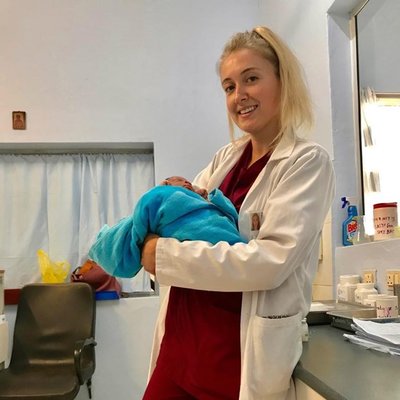 In the UK, women almost invariably have some analgesia. In Lusaka, there was no pain relief at all. There was a complete lack of monitoring equipment, so there were a few cases where babies passed away in the labour process. Most of these would have been preventable in the UK because we have very close monitoring.
In the UK, women almost invariably have some analgesia. In Lusaka, there was no pain relief at all. There was a complete lack of monitoring equipment, so there were a few cases where babies passed away in the labour process. Most of these would have been preventable in the UK because we have very close monitoring.
In the UK, labouring women usually have room to themselves. In Lusaka, women share a room with three or four others.
No visitors were allowed in during labour, so fathers or any other family members weren't allowed in. It was just the woman who was allowed to be there. Things were massively different.
How do you feel it has geared you up for a career in medicine?
On the degree front, I’m glad I did it this way because now I’m a little older and have more life experience. I feel much more confident in what I’m doing than perhaps I did when I finished my nursing degree.
One of the main benefits is that I now have a better idea of where I want my career and what I want out of it. Also, I’m glad I did both elective placements in Lusaka and Takoradi; they were the highlights of my nine-year university experience.
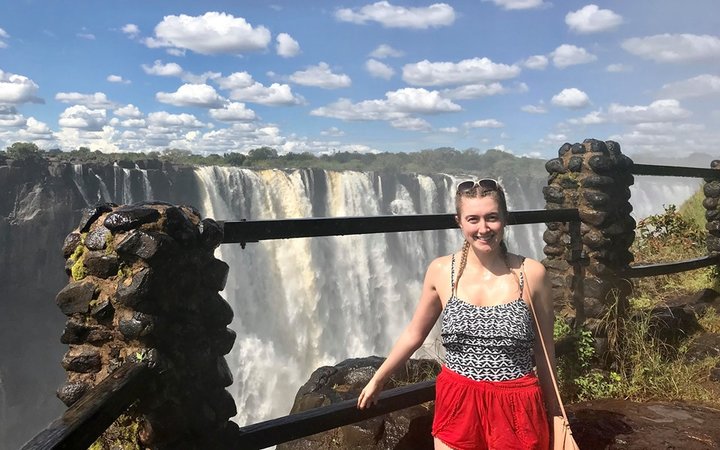
- A trip to Victoria Falls -
I’d say the second time, having a bit more life experience, I got much more stuck, and I asked to do a lot more, and I got a lot more out of it because of that. I’d recommend Work the World to anyone considering travelling — and be sure to get stuck in while you’re there. The more you ask to do things, the more you introduce yourself and get to know people, the more you’ll get to do, and the more you’ll gain from the experience.
Inspired by Emma's story? To start your overseas adventure, read more about our placements in Takoradi or explore our other destinations here. Discover more about our Electives in Africa — you'll find a range of unique destinations that offer eye-opening clinical experiences and adventures.
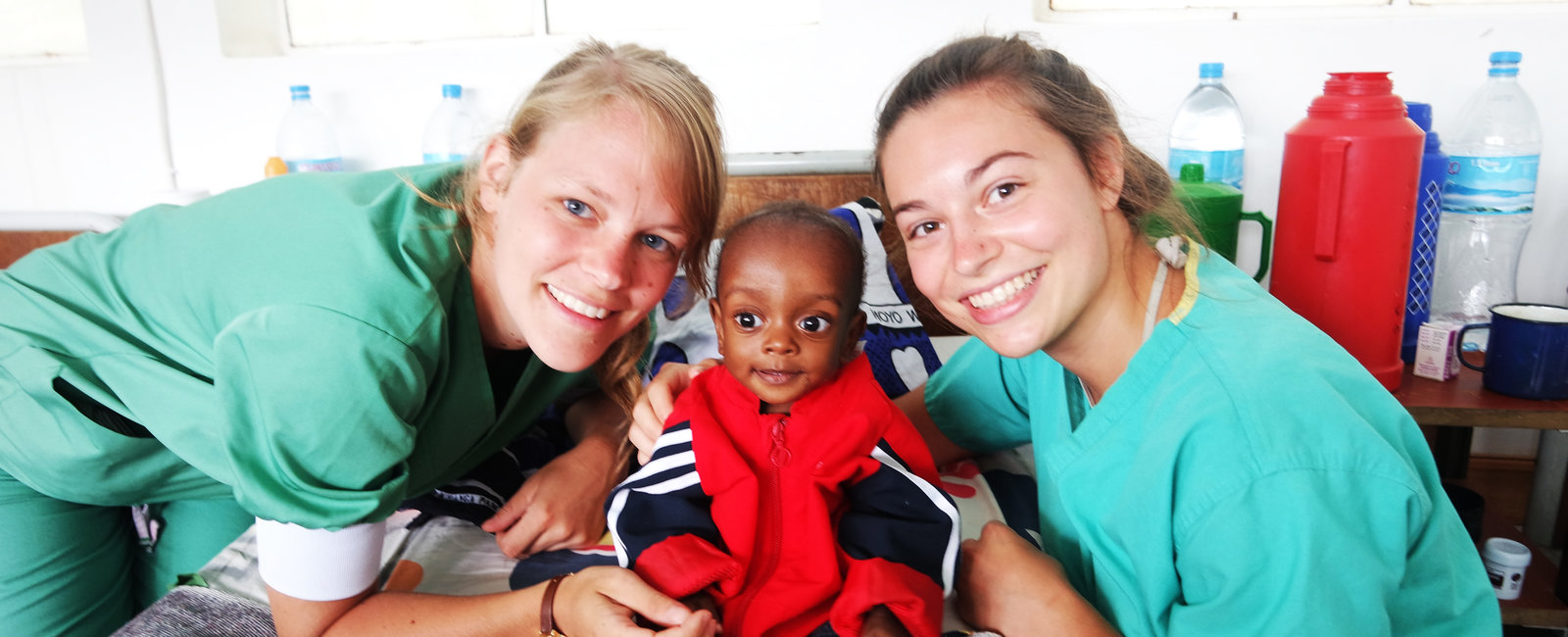
Electives in Africa
If you want to find out more about our electives in Africa, get in touch with our expert team via our short enquiry form.
If you want to find out more about our electives in Africa, get in touch with our expert team via our short enquiry form.
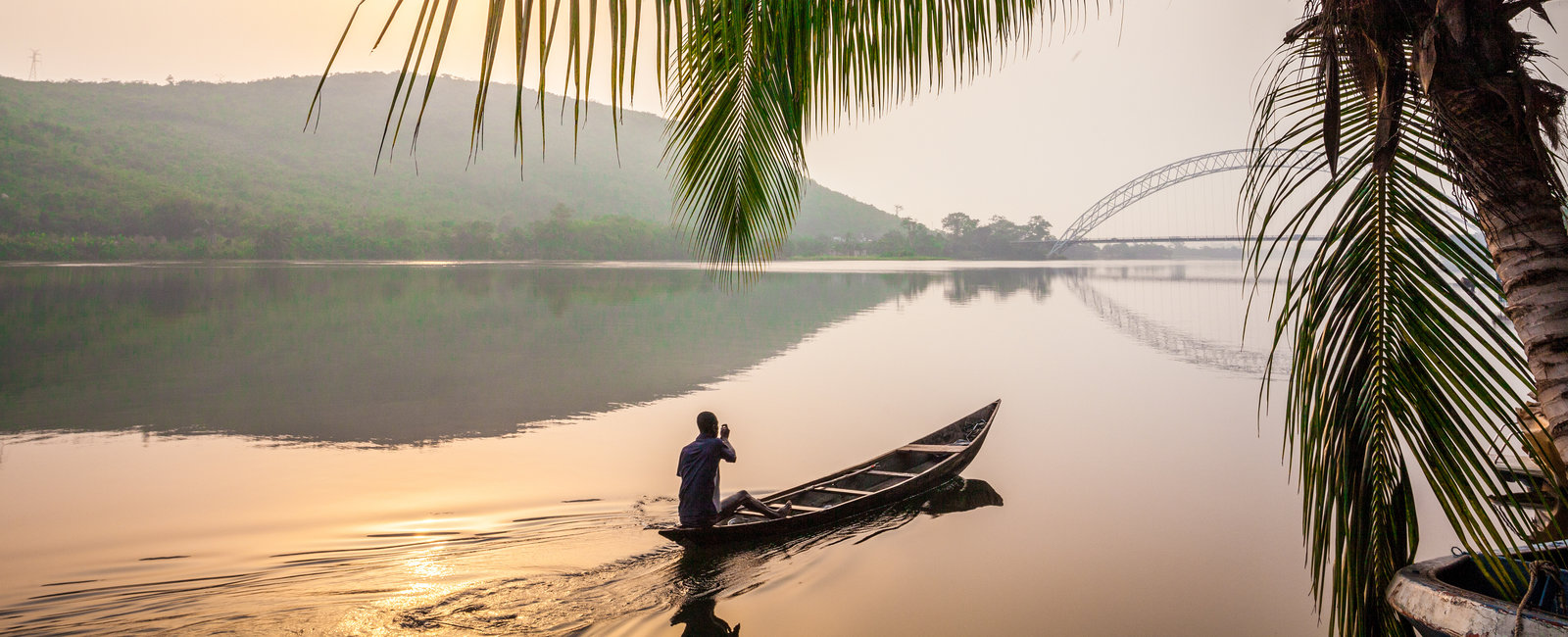
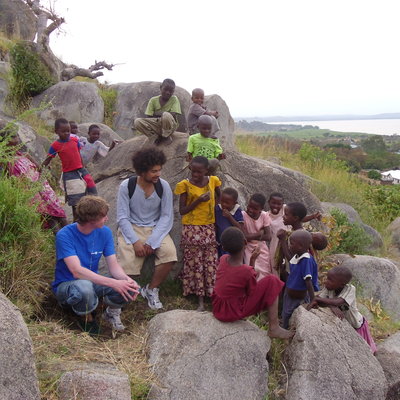
.jpg)
